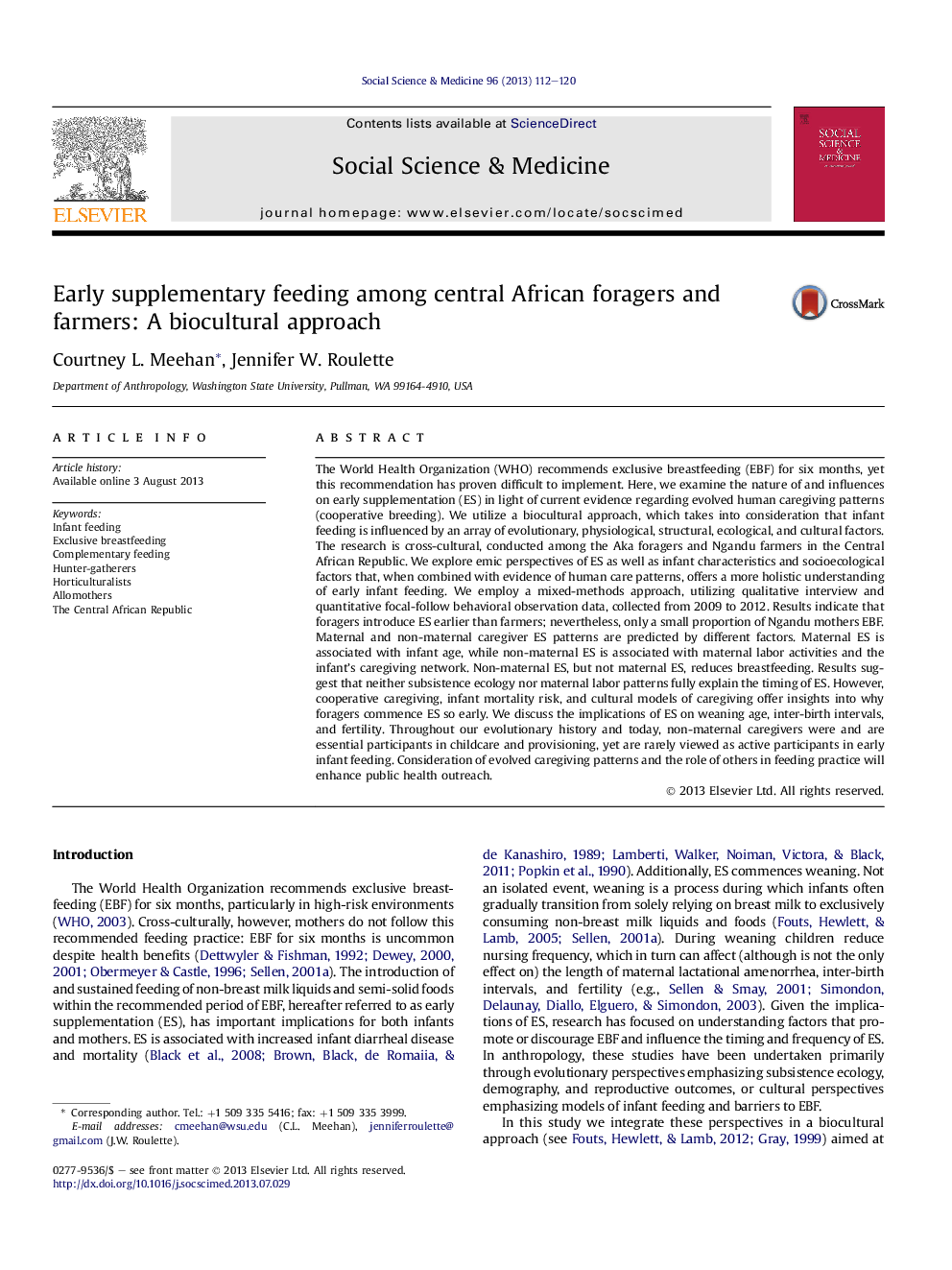| کد مقاله | کد نشریه | سال انتشار | مقاله انگلیسی | نسخه تمام متن |
|---|---|---|---|---|
| 7336732 | 1476072 | 2013 | 9 صفحه PDF | دانلود رایگان |
عنوان انگلیسی مقاله ISI
Early supplementary feeding among central African foragers and farmers: A biocultural approach
ترجمه فارسی عنوان
تغذیه تکمیلی زودهنگام میان علوفه و کشاورزان مرکزی آفریقا: رویکرد بیولوژیک
دانلود مقاله + سفارش ترجمه
دانلود مقاله ISI انگلیسی
رایگان برای ایرانیان
کلمات کلیدی
موضوعات مرتبط
علوم پزشکی و سلامت
پزشکی و دندانپزشکی
سیاست های بهداشت و سلامت عمومی
چکیده انگلیسی
The World Health Organization (WHO) recommends exclusive breastfeeding (EBF) for six months, yet this recommendation has proven difficult to implement. Here, we examine the nature of and influences on early supplementation (ES) in light of current evidence regarding evolved human caregiving patterns (cooperative breeding). We utilize a biocultural approach, which takes into consideration that infant feeding is influenced by an array of evolutionary, physiological, structural, ecological, and cultural factors. The research is cross-cultural, conducted among the Aka foragers and Ngandu farmers in the Central African Republic. We explore emic perspectives of ES as well as infant characteristics and socioecological factors that, when combined with evidence of human care patterns, offers a more holistic understanding of early infant feeding. We employ a mixed-methods approach, utilizing qualitative interview and quantitative focal-follow behavioral observation data, collected from 2009 to 2012. Results indicate that foragers introduce ES earlier than farmers; nevertheless, only a small proportion of Ngandu mothers EBF. Maternal and non-maternal caregiver ES patterns are predicted by different factors. Maternal ES is associated with infant age, while non-maternal ES is associated with maternal labor activities and the infant's caregiving network. Non-maternal ES, but not maternal ES, reduces breastfeeding. Results suggest that neither subsistence ecology nor maternal labor patterns fully explain the timing of ES. However, cooperative caregiving, infant mortality risk, and cultural models of caregiving offer insights into why foragers commence ES so early. We discuss the implications of ES on weaning age, inter-birth intervals, and fertility. Throughout our evolutionary history and today, non-maternal caregivers were and are essential participants in childcare and provisioning, yet are rarely viewed as active participants in early infant feeding. Consideration of evolved caregiving patterns and the role of others in feeding practice will enhance public health outreach.
ناشر
Database: Elsevier - ScienceDirect (ساینس دایرکت)
Journal: Social Science & Medicine - Volume 96, November 2013, Pages 112-120
Journal: Social Science & Medicine - Volume 96, November 2013, Pages 112-120
نویسندگان
Courtney L. Meehan, Jennifer W. Roulette,
